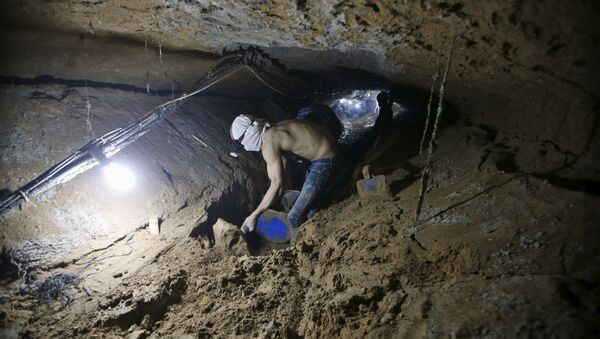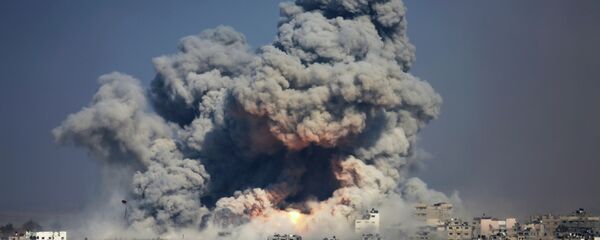At one point, an estimated 22,000 Palestinians worked in around 2,500 tunnels, bringing commercial goods mainly into Gaza. Weapons were smuggled in separate tunnels controlled by Hamas and other militant groups, Reuters reported.
But in September, while facing of an insurgency in northern Sinai, Egypt shut down the tunnels. In an effort to halt what it said was an arms flow in the opposite direction – from Gaza to the militants – Cairo started pumping water into the tunnels, collapsing the land.
Tunnel-builders said that since September, Egypt has done more damage to the tunnels than Israeli bombing had caused over the past two decades, Reuters reported. It is now thought that less than 20 tunnels remain, with cigarettes the main contraband taken across the border.
But more than destroying the tunnels, the flooding is contaminating water supplies and threatening to wreck farmland and spread disease, Palestinian officials say.
"One cubic meter of seawater pollutes 40 cubic meters of underground water," said Tamer al-Sleibi, a water department director in Gaza.
He worries that the water could weaken the foundations of homes and spoil the land for agriculture. Additionally, as the water turns stagnant, mosquitoes and other disease carriers will breed.



